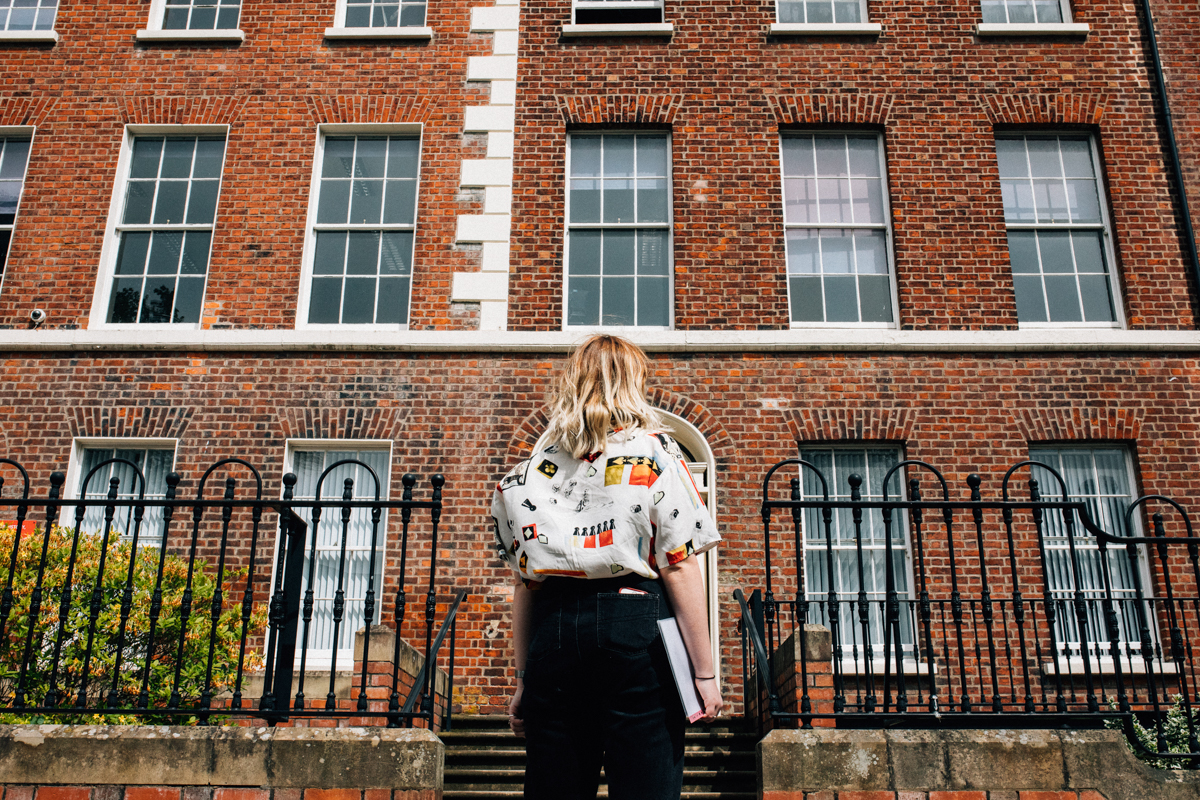Community Assistant and PhD student in Education, Abbie Kewley, writes about what she wishes she had known at the start of her PhD.
To all those reading this who are about to embark on a PhD, I want to first of all say a huge WELL DONE! You should be super proud of yourself. I will never forget that surreal, *pinch myself* moment when my PhD project was accepted at Queen’s. My parents even organised a party for me to celebrate the occasion! I suppose *pinching yourself* (metaphorically, of course) is my main message that I want to convey through this blog post. A PhD is not intended to be easy, and you will need to keep pinching yourself during your journey. When you’re finding it stressful (which is only natural), pinch yourself as a reminder that YOU CAN DO THIS. When you present at your first conference, pinch yourself as a way of saying YOU DID IT. When you pass your differentiation, pinch yourself for succeeding in THAT PROCESS.
As I reflect on my PhD journey, I think about all the things that I wish I had known before I started, of which there are many. Therefore, I thought it would be a good idea to communicate these in order to (hopefully) help someone else through their journey to completion. I could write all day on this, although I decided to narrow it down to my top three.
1. You don’t need to sit at your desk morning, noon and night
Maximising your research output is all trial and error. The key to this is to find a time of day that suits you best to work and stick to that schedule. You will be so much more productive during this time than what you would be sitting at your desk ALL day. Personally, I would recommend using the pomodoro technique, which is a time management system to boost your productivity (find out more about it here). Remember, quality is much better than quantity, though on occasion, you may have to deter from your schedule.
2. Nobody will really understand what your research is about, including you!
This sounds a bit bizarre, however you will soon know exactly what I mean. Throughout your PhD, numerous people will ask you the question: what is your PhD about? It is very difficult to articulate an answer to this question that is concise enough (so as to not bore people to death with the detail) and clear enough (so as people outside of your discipline will understand). Knowing where to start is a bit of a conundrum and you may not know yourself exactly what direction your PhD is going to go in, especially at the beginning anyway. Truthfully, I did not know the finer details of my project until I completed a comprehensive literature review. My two top tips for overcoming this struggle are: 1) summarise your research in the length of a tweet, and keep editing this throughout your PhD journey, and 2) take part in the 3-minute thesis competition (organised by the Graduate School). It takes a lot of practice to not let your heart skip a beat every time someone asks you about your thesis.
3. There is life beyond your thesis
I’ve lost count of the amount of times that I felt totally consumed by my PhD. On many occasions, I have said to myself “as soon as I get this chapter finished, then I can do x, y and z.” However, I soon realised that begrudging time with family, friends, or even myself is not helpful. If you are fortunate enough to have a good support system, i.e. husband/wife/best friend, it is important that you talk to them. They may not entirely be able to empathise with your situation, but they will listen to what you have to say. Also, be sure to reward yourself whenever you reach your goals, no matter how small. These rewards don’t have to be extravagant, even something as simple as having a nice hot bath and reading a (non-academic) book will leave you feeling refreshed. I also feel that when these other things are going well, you will actually produce better work. If I feel healthy, eat well, sleep well, and get some exercise, I find it much easier to focus on my work. If I speak to my friends and family regularly and take time off to do fun things, the problems I have with my work seem much easier to overcome. If I take time to pursue my hobbies that have nothing to do with my research, I find that I think much more clearly. There is no doubt that completing your thesis is important and some things may have to wait, but don’t let your health and wellbeing suffer.
The points made in this blog post are far from exhaustive. I have spoken from the heart and personal experience. My final point is to encourage you to reflect on the quotations below from my fellow PhD colleagues and to keep *pinching yourself*!
“Don’t isolate yourself, make friends with other PhD students as soon as possible and meet with them regularly to vent”
“It’s so important to see your PhD journey as individual and therefore it cannot be compared to others”
“Read Dunleavy’s book ‘Authoring a PhD’ and read Gilbert’s book ‘Big Magic’ when stuck in a rut”

Abbie-Leigh Kewley
PhD student in Education from Belfast

